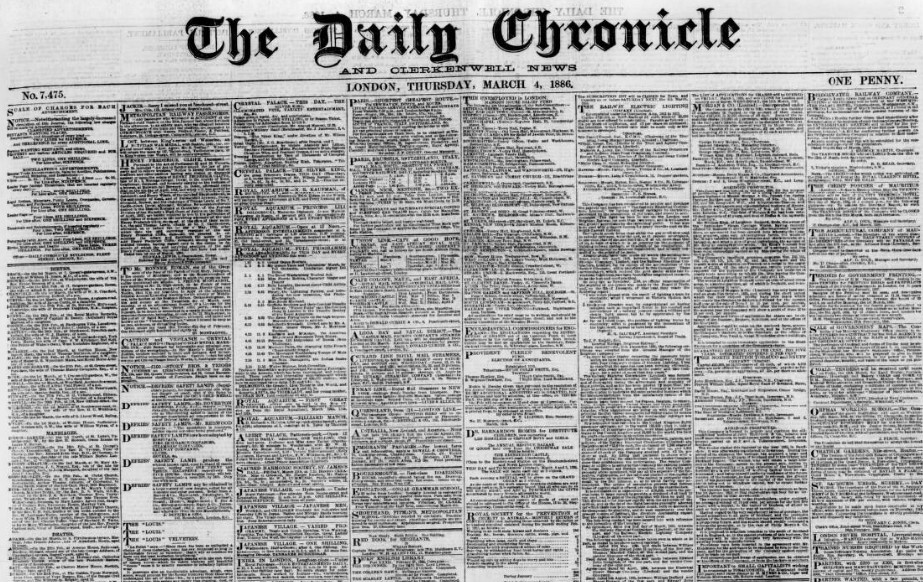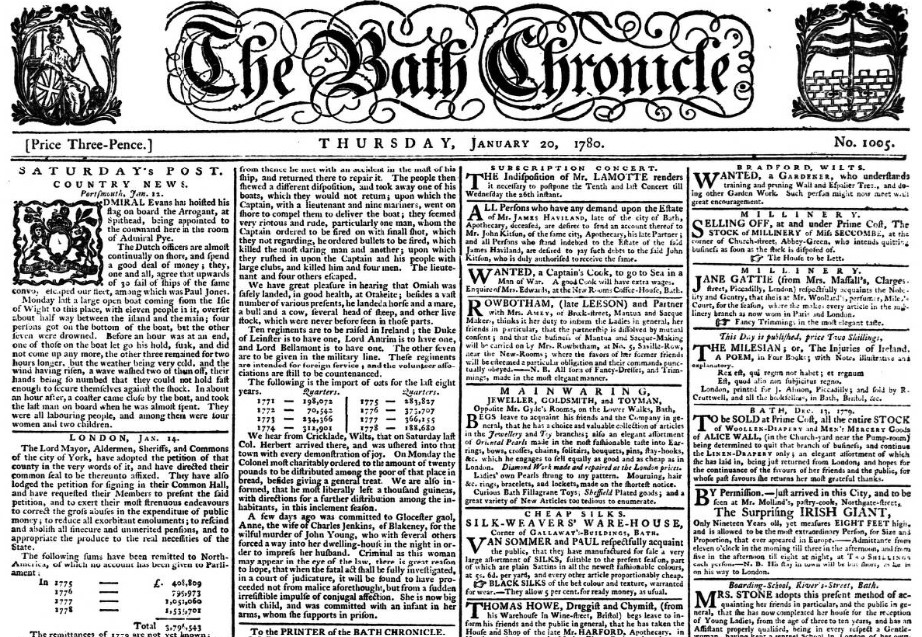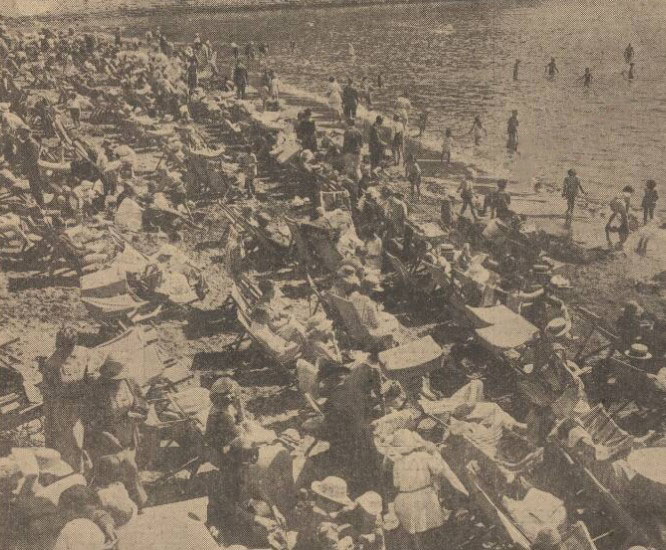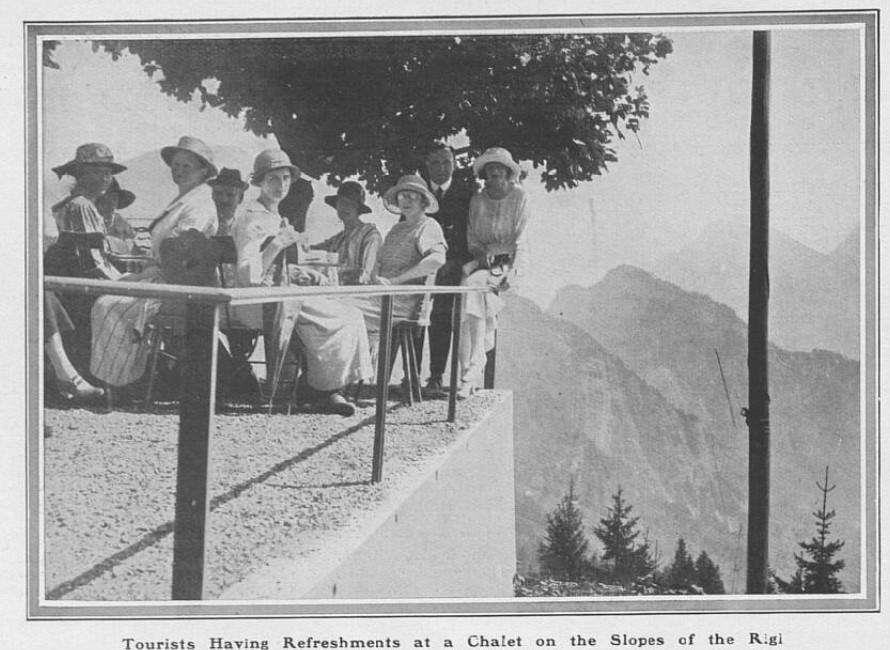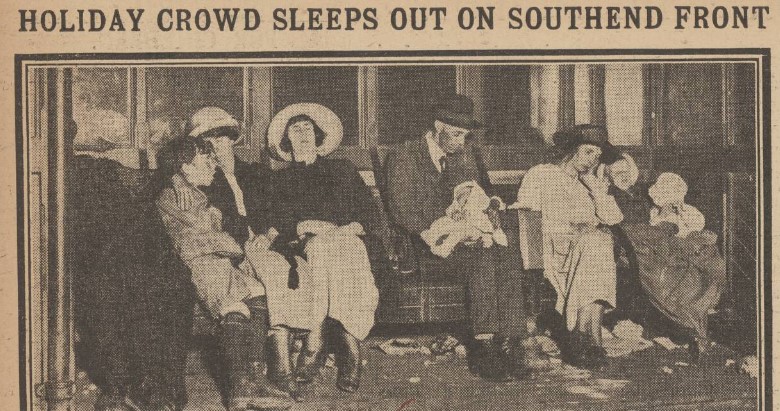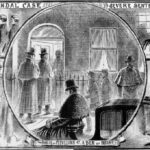This week sees the addition of 155,862 brand new pages to our collection, with significant updates in particular to national daily newspaper the London Daily Chronicle. Meanwhile, from Lichfield to Liverpool, from South Wales to Wexford, we have updated eight of our newspaper titles this week.
So read on to discover more about all of our updated titles of the week, and also to explore what holidays were like one hundred years ago.
Register now and explore the Archive
Our largest update of the week is to the Huddersfield Daily Examiner, to which we have added over 24,000 brand new pages, the pages all hailing from the 1970s. The Huddersfield Daily Examiner first appeared as the weekly Huddersfield and Holmfirth Examiner in 1851, becoming a daily newspaper on 28 January 1871. This shift made the newspaper the West Yorkshire market town of Huddersfield’s first daily newspaper, its journalists working all through the weekend to prevent a rival newspaper from taking that honour.
The Huddersfield Daily Examiner, meanwhile, has another important claim to fame. In 1888 it became the first British provincial newspaper to employ a woman journalist. It is still published to this day, and its editor is Wayne Ankers, who previously worked for the Manchester Evening News.
Our second biggest update of the week are the over 18,000 brand new pages that we have added to the London Daily Chronicle, which come from the 1880s and the 1920s. The London Daily Chronicle traces its origins to local newspaper the Clerkenwell News and Domestic Intelligencer, which was founded in 1855 as a halfpenny weekly title.
Developed by publisher Edward Lloyd (1815-1890), who was responsible for such output as Sweeney Todd, the title went through various name changes. In 1872 it shifted finally from the London Daily Chronicle and Clerkenwell News to become the Daily Chronicle, and was published on a daily basis. The title filled eight pages, half of which was devoted to advertising.
Lloyd understood the power of advertising, the medium gaining for the newspaper 40% of its revenue. In 1876 Lloyd bought the newspaper, and on 28 May 1877 he took the publishing world by surprise when the London Daily Chronicle was published in a national daily guise. Circulation figures rocketed from 40,000 to 200,000 that year, and by the 1890s the publication had become one of the best selling dailies, if not the best-selling daily newspaper in Britain.
Indeed, during the First World War the London Daily Chronicle outsold The Times, The Telegraph, the Morning Post, the Evening Standard and the Daily Graphic combined. In politics, the title was staunchly Liberal, and supportive of Liberal Prime Minister David Lloyd George. David Lloyd George would go on to buy the newspaper in 1918, selling the title in 1927 to three rich investors.
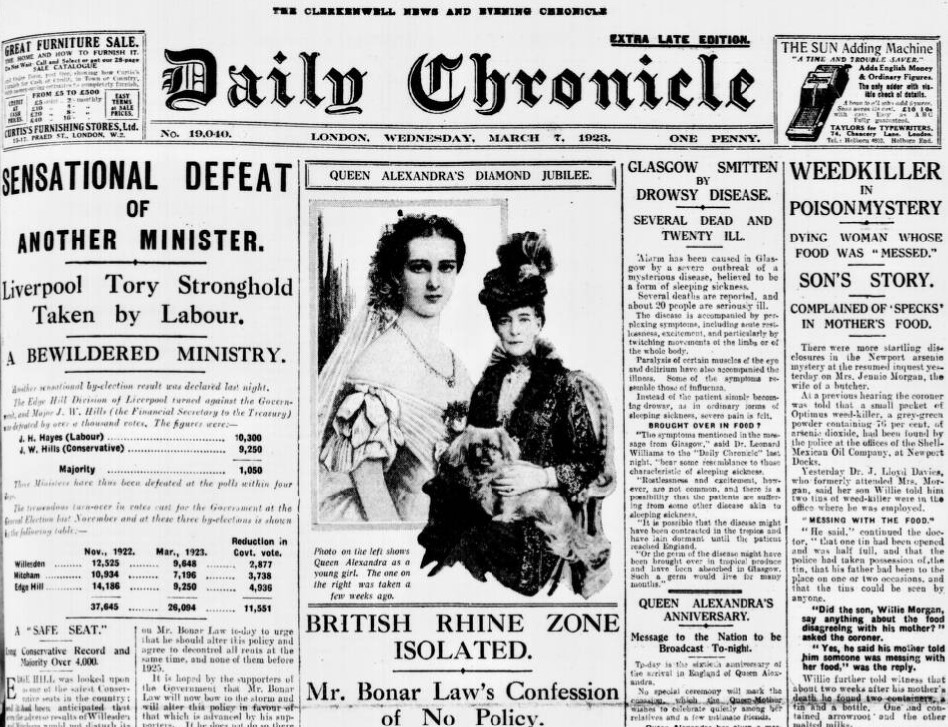
These investors were clueless when it came to newspaper publishing, and this was the beginning of the end for the once great national newspaper. The Wall Street Crash of 1929 did little to help the situation, although a lifeline came in 1930 when the title was bought by News and Westminster Ltd, who merged it with the Daily News to form the News Chronicle, which was published until 1960.
This week, meanwhile, also sees updates to historic Bath title the Bath Chronicle and Weekly Gazette, which was founded in 1760 by Cornelius Pope, as well as to Cardiff-based title the South Wales Echo, which was established in 1884. In addition to these fabulous updates, we have also added over 7,000 brand new pages to the Liverpool Echo from the year 1968, with new pages also joining one of our Irish titles, the Wexford and Kilkenny Express.
Holidays 100 Years Ago
This August at The Archive, across our social media, we are taking a look at the history of holidays in Britain. This week, using the newly added pages to the London Daily Chronicle, we thought we’d take a look back at summer holidays one hundred years ago, and specifically, at how attitudes to the holiday were evolving.
One hundred years ago this week, the London Daily Chronicle published a short paragraph with the heading ‘Streatham for Holidays.’ The piece went as follows:
Barely a century ago the majority of people regarded the sea with something akin to complete indifference. The preference in those days was for a summer holiday at inland watering places (of which there were many). London had its own little venues in Streatham and Norwood, both places attracting large numbers of holiday-makers during the summer. It was only since medical men discovered the curative properties of sea air that these inland watering places lost their holiday flavour and became purely residential districts.
And for those wanting to visit such seaside places, as well as river resorts, in 1923, the London Daily Chronicle detailed the types of ‘Holiday Trips‘ on offer. This is from 7 July 1923:
Day trips to the riverside resorts between Staines and Wallingford for three farthings a mile or less – this is the attractive offer of the G.W.R. On Sundays and week-days passengers travel by any train leaving Paddington station from early morning to 3 p.m. (4.30 Saturdays, 5.30 Sundays). To Staines (20 miles) the fare is 2s. To Goring (45m), the fare is 5s 8d. Beginning yesterday, the ‘Belle Steamers’ will extend their Clacton and Walton service to Felixstowe, Southwold, Lowestoft, and Yarmouth. Catering is excellent and fares moderate.
However, further change was in the air. On 20 July 1923 the London Daily Chronicle published a piece entitled ‘Holidays Abroad,’ which observed how:
Travel in the British Isles has its pleasures and compensations, but there are many who liked to wander father afield, and spend their holiday under alien, but nevertheless, friendly skies.
This interest in foreign travel had increased since the end of the First World War, ‘partly because of the much-depreciated exchange in some of the Continental countries, and, also, owing to the inherent craving of the English people to visit other lands.’
But how did people in 1923 travel abroad for their holidays? The London Daily Chronicle offers some answers. Travel could be undertaken with the Royal Mail Steam Packet Company, which operated the ‘largest cruising steamer in the world,’ the Arcadian. For the Arcadian’s September cruise, the route would take in Spain, Portugal, Morocco, Algeria, Gibraltar, Madeira and the Canary Islands.
Another option for holidaying abroad, according to the same London Daily Chronicle piece, was to travel with tour operator ‘Cooks,’ perhaps better known as Thomas Cook, which ran its first ‘excursion train from Leicester to Loughborough in July 1841.’ By 1923, Cooks was offering an extensive summer holiday programme, which featured ‘a list of over 150 tours at home and abroad.’
Methods of travel by 1923 were changing, too. On 18 August 1923 the London Daily Chronicle published a piece which announced the arrival of ‘five new air services,’ the article detailing how:
Arrangements are complete for the opening of new air lines from England to Cherbourg (to shorten the Atlantic crossing), the Channel Islands, and Switzerland, while plans are being formulated for additional services to Dublin, Belfast, and Edinburgh, and Glasgow.
The so-called ‘Holiday Airways’ would include a ‘thrice-weekly summer service to Switzerland,’ with the other routes being:
Southampton-Channel Islands: starting next week, train from Waterloo to Woolston, the air port of Southampton, then by flying boat. Complete journey, 3 1/2 hours.
Cherbourg: starting in about a fortnight. Will save eight or nine hours on Transatlantic journey.
Switzerland: starting on Wednesday, to Basle and Zurich in 6 1/2 hours’ flying. Thrice weekly in summer. Week-end trips for winter sports.
With the advent of flying, the nature of the summer holiday was changing forever. However, such trips were in their infancy, and many people in Britain stayed at home for their holidays, taking advantage of railway trips to the seaside, and the growing holiday camp movement.
Find out more about the history of holidays, flying, and much more besides, in the pages of our newspaper Archive today.
Updated Titles
This week we have updated eight of our existing titles.
You can learn more about each of the titles we add to every week by clicking on their names. On each paper’s title page, you can read a FREE sample issue, learn more about our current holdings, and our plans for digitisation.
| Title | Years Added |
| Bath Chronicle and Weekly Gazette | 1780, 1794 |
| Croydon Express | 1912 |
| Huddersfield Daily Examiner | 1970, 1972, 1977-1979 |
| Lichfield Post | 1991 |
| Liverpool Echo | 1968 |
| London Daily Chronicle | 1886, 1889, 1923, 1926, 1929 |
| South Wales Echo | 1912 |
| Wexford and Kilkenny Express | 1900 |
You can keep up to date with all the latest additions by visiting the recently added page. You can even look ahead to see what we’re going to add tomorrow.



